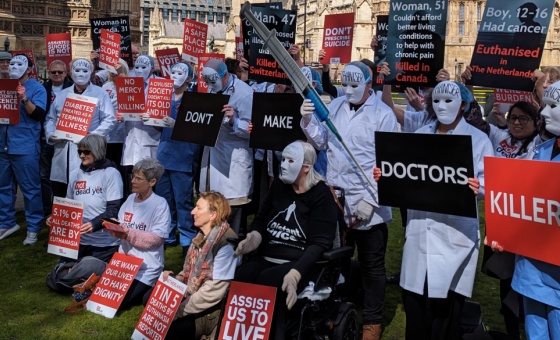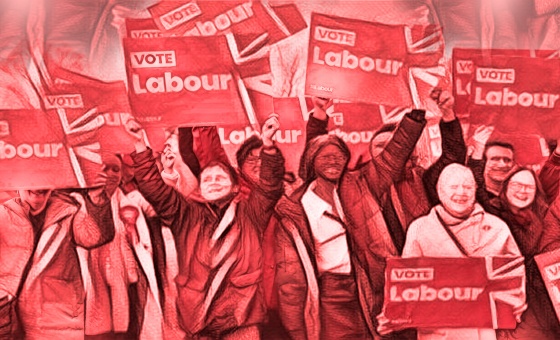This is the last article you can read this month
You can read more article this month
You can read more articles this month
Sorry your limit is up for this month
Reset on:
Please help support the Morning Star by subscribing here
PRIVATE healthcare firms are now so embedded in the NHS that they literally guard the entrance to A&E. And they are using their strategic position of controlling access to A&E to extract millions for their shareholders.
Back in 2017, NHS England ordered a “standardisation” of urgent treatment centres. This encouraged a movement from a variety of community-based minor injuries-type clinics to a growing number of privately run urgent treatment centres, which are “typically based at the front of A&E, where they divert these minors away from A&E.”
NHS England believes this scheme might reduce demand on A&Es, by taking the least urgent injuries out of the emergency ward. Health companies see it as a major business opportunity.
One of the companies, Totally PLC, runs 11 urgent treatment centres, including at London’s King’s College, West Middlesex, Woolwich Queen Elizabeth and Orpington Princess Royal hospitals.
Totally PLC employs nurses to run “front-door streaming,” filtering out patients who turn up for hospital A&E services into the privately run urgent treatment centre if their injuries or other health needs are judged as not serious enough for the full NHS emergency department treatment.
Privatisation has given corporate control to the front door of NHS hospitals. It is profitable business. Derby-based Totally PLC runs its urgent treatment centres through two subsidiaries, called Vocare and Greenbrook.
Their latest accounts, published this January, show that the NHS paid Vocare and Greenbrook a combined £98 million to run urgent treatment services in 2023. In turn, Vocare and Greenbrook paid Totally PLC combined dividends of £17.4m — that’s money extracted from the NHS and paid into Totally PLC’s accounts.
NHS England views these kinds of private services bolted onto A&E as “demand management,” which it says is crucial for the recovery of emergency care.
It is encouraging hospitals to set up this kind of “triage at the front door of ED [emergency departments]” and argue it is a key way for overstretched A&Es to recover stability.
But as emergency doctors have pointed out, if the NHS wants emergency departments to work better, it should give more money to emergency departments, not some private firm doing something else.
We need more emergency doctors, nurses and other health staff. We don’t need to see another crisis being used to divert money out of the NHS into the accounts of the shareholders of the private firms.
There certainly is a case for improving primary care to spread the healthcare load. But bolting private treatment centres onto A&Es looks more like desperation than a coherent plan — and private health firms are good at exploiting NHS desperation.
As well as sucking cash out of the NHS, these private urgent treatment centres are also often, like other health privatisations, “cherry-picking” the easy work and throwing all the difficult stuff back at the NHS. They also take away training opportunities from NHS staff, while typically not running full training themselves, hence sucking out resources from the NHS.
When NHS privatisation really got going, with Thatcherite outsourcing and Labour’s PFI, the public was reassured that this “only” affected “non-clinical services” like cleaning and catering.
Then Labour began parcelling out individual operations, like knee or cataract surgery in job lots. Even though the private firms were eating into the NHS, the running of general hospitals and A&E services were still seen as the core of the publicly run NHS. Now the private firms have worked their way to the door of the A&E itself.
When I first heard of private firms acting as gatekeepers to A&E, I was slightly sceptical, so I visited King’s College Hospital in London to see for myself. Not only was it true that Totally PLC acted as sort of healthcare “bouncers” at the front of the emergency department, my visit also underlined how private firms are deeply embedded in public healthcare.
The entrance to King’s is dominated by a huge truck marked with the Alliance Medical logo — this is a mobile MRI scanner unit from a private firm. Britain’s NHS has a major shortage of MRI and PET scanners, spending loads of money on private ones instead.
Many of the ambulances at the hospital gates were marked “G4S working in partnership with the NHS” — these were “patient transport” or non-emergency ambulances. Walking up to the front door of King’s gave a picture of the NHS literally surrounded by private corporations biting into the public health service, taking away the “easy” work for easy money, leaving the NHS with the difficult stuff.
We got to this point by both Tory and Labour governments carving out layer after layer of the NHS to hand over to private corporations. A new Labour government might accelerate this process — after all, the previous Labour government did so, with PFI, “block booking” private operations and “independent sector treatment centres.”
Wes Streeting is certainly promising to do so. Writing in the Sun, he said: “For the Conservatives, the NHS is covered in flashing signs warning, ‘Danger: Do Not Touch.’ They know the public don’t trust them with it, so they daren’t change it. Only Labour can reform the NHS.”
Streeting has clearly indicated this “reform” largely means privatisation — he is arguing because Labour is trusted on the NHS, it is better placed to exploit that trust and push through a privatisation Labour voters don’t really want.
In a variation on this argument, he told the Financial Times: “Just as only Nixon could go to China, only Labour can reform the NHS.” He means that right-wing Republican president Richard Nixon could unexpectedly open good diplomatic relations by visiting without being attacked as being “soft on communism” as a Democrat would. So Streeting will be allowed to push NHS privatisation because voters won’t be suspicious of a Labour minister in the way they would a Tory.
Just to make this completely clear, Harry Elphick of the European Healthcare Investor Association — a trade body of private health investors — told the Financial Times: “Everything I’m hearing is that they [Labour] will kick-start private sector investment much more proactively than the Tories were able to do.”
Follow Solomon on X @SolHughesWriter.










